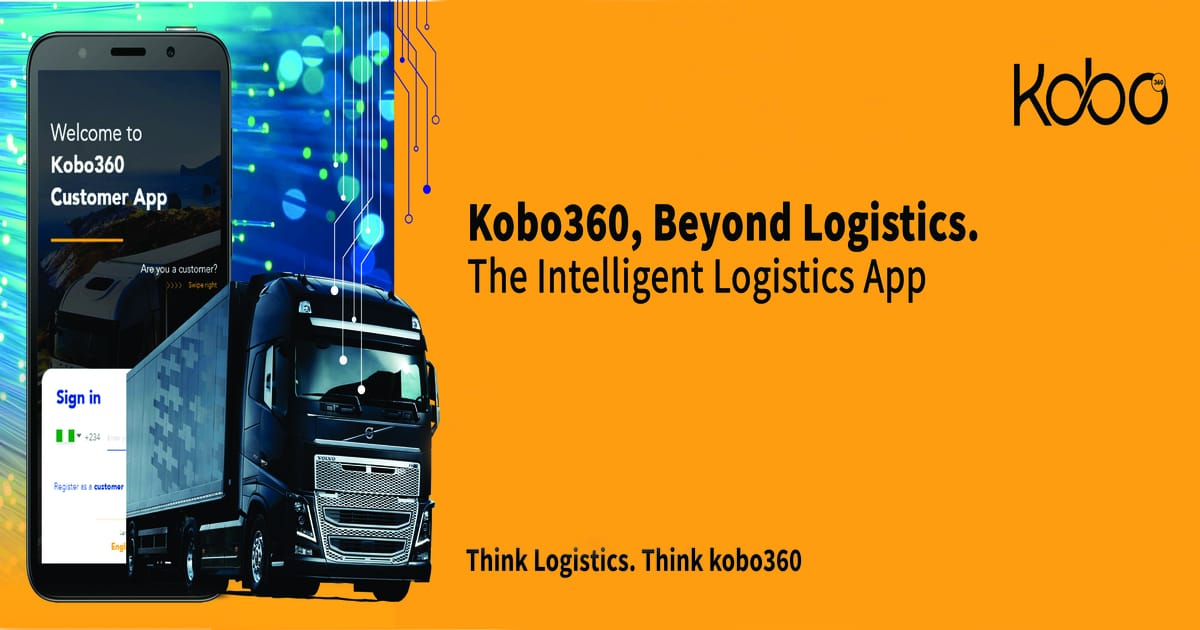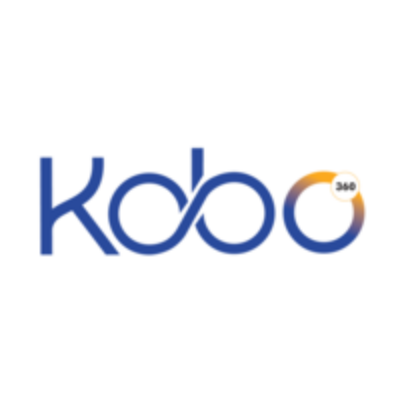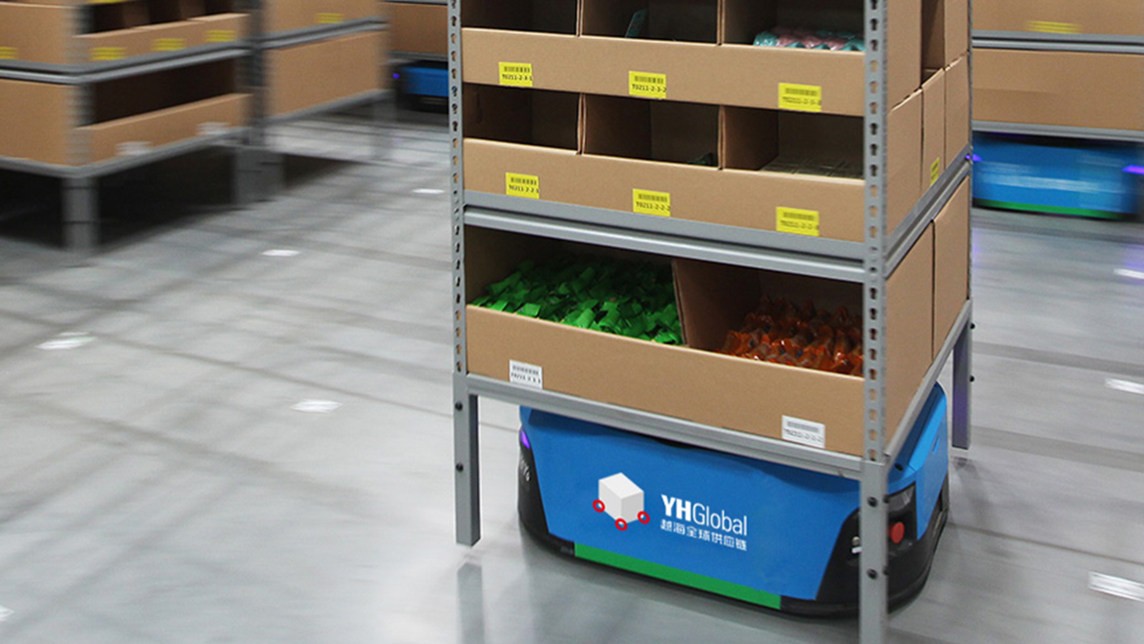Winning your first big client is never easy, but Kobo360 has a tale that beats most companies hands down. In 2017, the Nigerian logistics tech startup approached Honeywell to get the US conglomerate to try out its on-demand trucking service.
“We invited them to find ways to test us. So, they asked us to find six trucks for the Lagos–Maiduguri route,” recalled CEO and co-founder Obi Ozor. The route was notoriously dangerous, running right through Boko Haram territory. Kobo360 managed to get hold of four trucks in less than 48 hours for the job.
Honeywell gave them another route: to Bayelsa state in the south. “That’s where you’d find some activity from the Niger Delta militants who extort money from the truck drivers,” Ozor said. To get truckers to take the route, the Kobo360 founding team had to pay them upfront, which they managed by borrowing from relatives and friends. In the end, the startup completed 62 trips in three weeks and won a four-year contract from Honeywell.
Apart from dangerous encounters with rogue militants and bandits, Kobo360 also has had to grapple with the more mundane problems of potholed roads, customs clearance, red tape and corruption, which have stymied Africa’s economic development for decades.
Logistics costs contribute 50–75% of the retail price of goods in Africa, compared with just 6% in the US. Kobo360 reckons that its “Uber for trucks” solution can slash supply chain costs by 40%, making basic goods more affordable to locals.
Ozor had long dreamed of improving the dire state of logistics in his homeland, having run into insurmountable barriers as a young entrepreneur. While studying in the US, Ozor and university friend Ife Oyedele II had teamed up to export diapers and baby soap to customers in Nigeria.
“It took one week to transport goods 1,000 km from Nigeria's largest city Lagos to Kano in the north,” Ozor recalled. “You find middlemen charging exorbitant, unaccountable fees to transport cargo. But they cannot provide accurate tracking information when asked. Goods arrive at their destinations in terrible shape or sometimes go missing. Not to mention the stress truck drivers go through waiting to load the cargo at the ports, or the danger faced while transporting the goods.”
He added: “The challenges I faced as a teenage business owner were still the same challenges that SMEs and large enterprises were facing in 2016. I knew something had to be done.”
Ozor finally found a way to realize his dream after working one year as Uber’s operations coordinator in Nigeria. Inspired by the ride-hailing unicorn’s asset-free business model, he began creating a similar platform for truckers.
In 2016, Ozor and Oyedele co-founded Kobo360. Within a year, the app with its on-demand logistics platform was launched. Today Kobo360’s network spans nearly 13,000 trucks, having worked with over 2,300 clients including homegrown conglomerate Dangote Group and multinationals like DHL, Unilever, Maersk and Procter & Gamble.
Across Africa and beyond
In 2019, Goldman Sachs and the World Bank’s International Finance Corporation (IFC) became lead investors in Kobo360’s $20m Series A round. The company also secured $10m more in working capital from commercial banks in Nigeria.
The funding accelerated Kobo360’s expansion into 16 African countries, with over 200 staff based in offices in seven countries including Ghana, Kenya, Uganda, Burkina Faso and Togo, home to West Africa's largest port. In 2020, the company secured a base in one of West Africa's three largest economies, Côte d'Ivoire.
“The problem we’re solving in logistics is how to get Africa on the move and we take this same direct approach into all aspects of our business,” Ozor told media. “We’re a company that started in Nigeria but we already consider ourselves to be a pan-African company, with tech solutions that will change how the whole continent does business.”
The African Continental Free Trade Agreement (AfCFTA), which came into effect January 1 this year, is expected to stimulate demand for logistics services. Except for Eritrea, the 53 African countries have agreed to cut tariffs for 90% of African goods. People can also travel across borders freely for the first time.

Kobo360 also plans to help local producers find new markets further afield, improving food security by guaranteeing reliable delivery services that are affordable to SMEs. Together with existing investor and World Bank member IFC, Kobo360 is also looking to develop more sustainable and smart cooling technology for supply chains in Nigeria.
“If you’re a business in Lagos and you’re worried about whether your cargo will make it in good condition (or even at all) to Abuja, the prospect of you transporting goods from Lagos to Nairobi is a distant reality; but that’s where we come in,” Ozor told media.
“We’re investing in tech that gives businesses the necessary transparency and peace of mind over their cargo. The AfCFTA also makes the continent a much more attractive proposition for foreign companies who will need partners who are capable of delivering their goods on time and in the right condition.”
By transforming Kobo360 into a key logistics player in Africa and beyond, Ozor hopes the company will grow exponentially to become an African unicorn worth $2bn.
Global logistics blockchain
Accessible via Android and iOS apps, Kobo360 has similar features and functionality of the Uber apps. Separate dashboards are provided for the truckers and corporate clients or partners. Clients can post orders directly on the platform and negotiate for the best prices from bidders. Truckers can view delivery requests and bid for those that match their routes and truck capacity. The journey details can be monitored in real-time on a map. Once a delivery is made, the driver scans and uploads the signed waybill via the app and an invoice is automatically sent to the client.
Its trucks have capacities ranging from 3–60 tons, now offering on-demand services across 80% of Nigeria. Besides catering to price-sensitive clients, Kobo360 also aims to be faster than local rivals. Once a job is assigned, the trucker can pick up the goods in less than six hours.
In 2020, all operations, including trucking, became fully digitalized. The Covid-19 pandemic was the catalyst for the rapid digital transformation as Africa’s fragmented supply chains were severely hit by travel restrictions and border closures.
The company’s pan-African expansion will be boosted by Kobo360’s new Global Logistics Operating System (G-LOS) with blockchain-enabled traceability of cargo and related transactions. Business shot up by almost 70% overnight, said Ozor. The digitalization of operations has helped drivers using the app to overcome cross-border bureaucracy and other transportation issues, saving customers about 7% more in logistics costs.
The Y Combinator alumnus was named Disrupter of the Year at the 2019 Africa CEO Forum and was also nominated for the 2020 AppsAfrica Innovation Awards in the Disruptive Innovation and Mobility categories.
Incentives to boost gig economy
“Right from the start of our journey, we’ve made it a point to ensure that our drivers are well taken care of, as they’re such a crucial part of our team and the supply chain,” Ozor said.
In May 2018, around the same time the startup received investment from Silicon Valley’s Y Combinator, Ozor decided to uproot his family from Lagos and relocate to Kano in the north. “About 82% of truck owners and drivers come from the north,” he explained. By living in Kano for a year, he got to know more about the needs of the truckers. He then created various incentives to bring them on board and expand Kobo360’s trucking network to meet growing demand from clients.
Today, over 50,000 drivers use Kobo360 to optimize their routes, including return trips that are usually empty runs. As a result, many are able to boost their earnings by up to 40%.
Kobo360’s bidding system connects customers directly to truck owners and drivers, allowing them to negotiate for the best price for each order or delivery job. The English language platform has multi-lingual features to help drivers who prefer to communicate in French or local languages like Hausa, Pidgin, Twi and Swahili.
Drivers receive half of the agreed fee upfront upon acceptance of a trip, with the balance paid on completion of the delivery. Kobo360’s fintech service KoPay earns a small fee from drivers who prefer not to wait 30 days to get paid by customers. They also pay a fee for working capital finance of up to $5,000 a month.The driver’s app also acts as a virtual wallet so that truckers can go cashless in case of a robbery while on the road.
Kobo360 works with diverse partners to provide truckers with discounts for fuel, parking, medical care, insurance and support services. In case of break downs, local partners can quickly send vehicle repair engineers to fix the trucks, or provide support staff to transfer the cargo to a new truck to ensure that deliveries are made on time.
The company is even designing a low-cost truck “that works for Africa” and will halve transport costs by removing air-conditioning and improving the vehicle suspension system to cope with poor road conditions in Africa. Vehicle financing is also available to help drivers buy their own trucks, empowering more locals to become entrepreneurs and boost the livelihoods of local communities.














